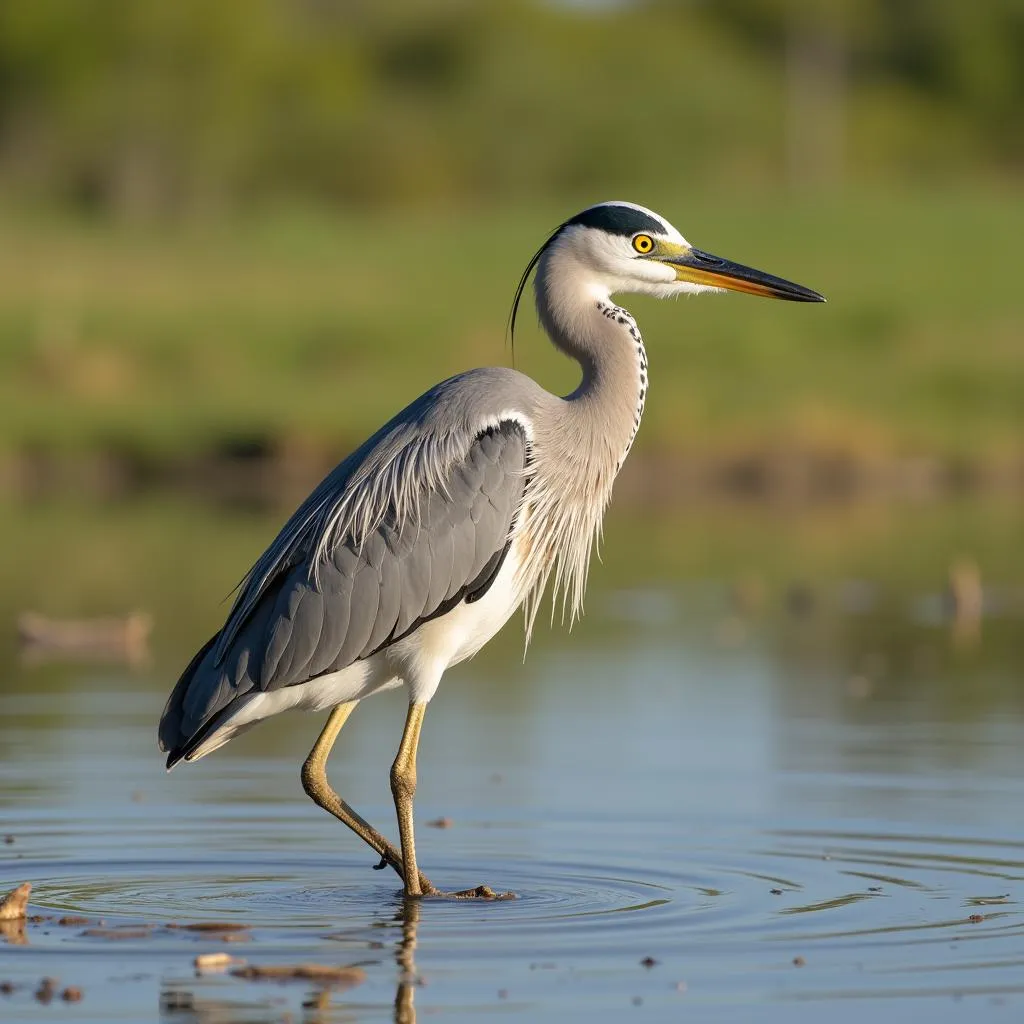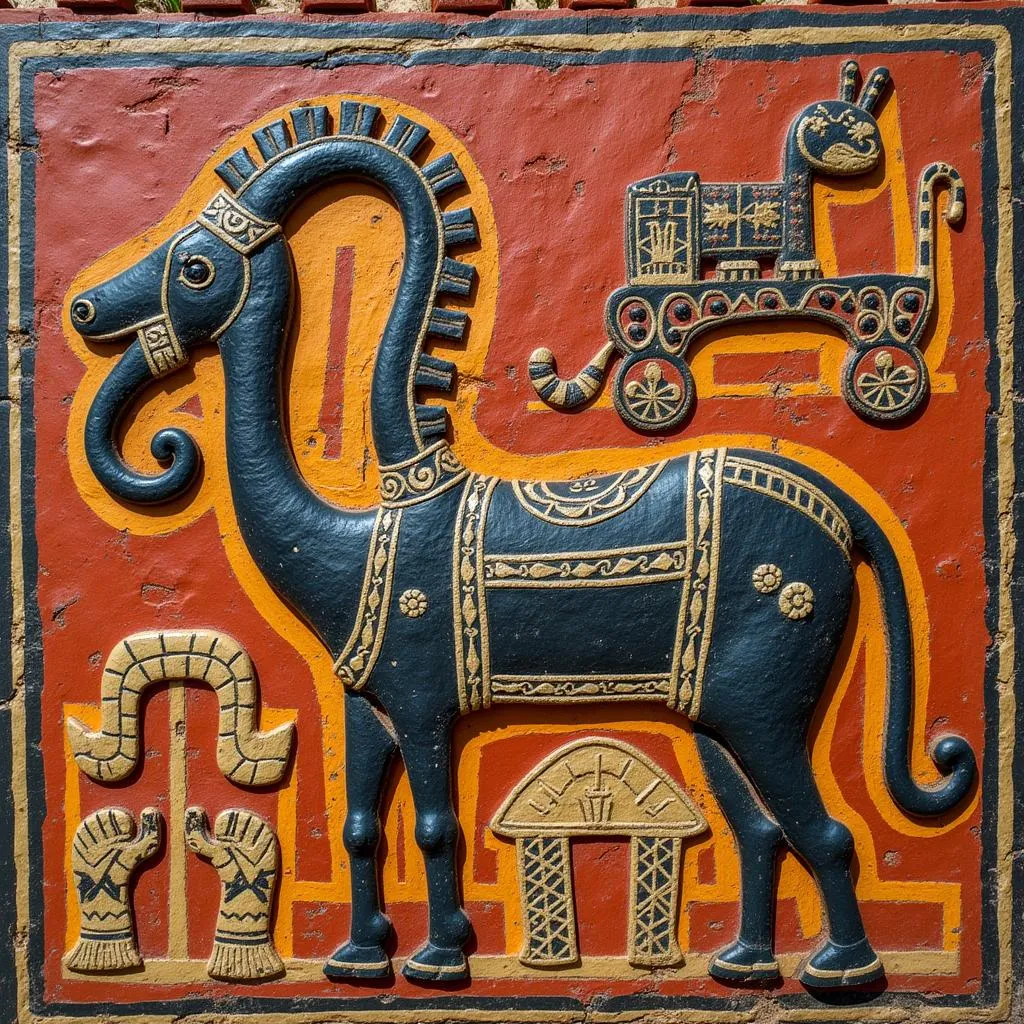The African Heron: Majestic Wader of the Wetlands
The African Heron, a common sight across sub-Saharan Africa, is a wading bird with a striking appearance and intriguing behaviors. This article delves into the world of these fascinating creatures, exploring their habitat, diet, breeding habits, and cultural significance.
A Closer Look at the African Heron’s Appearance
Characterized by their predominantly grey plumage, African herons possess a distinctive elegance. Their long, S-shaped necks and dagger-like bills are perfectly adapted for their preferred feeding methods. Adults boast a black crown, while juveniles display a more mottled brown and grey coloration. With a wingspan reaching up to 1.5 meters, these birds are a captivating sight as they soar through the African skies.
Habitats and Distribution of the African Heron
As their name suggests, African herons are widely distributed across sub-Saharan Africa. They favor wetland habitats, including marshes, swamps, rivers, and lakes. These environments provide ample food sources and suitable nesting grounds.
The Diet of a Skilled Hunter: What Does the African Heron Eat?
African herons are adept hunters, primarily feeding on fish. Their hunting techniques involve patiently stalking prey in shallow water, using their sharp bills to spear fish with lightning speed. In addition to fish, their diet also includes amphibians, reptiles, insects, and crustaceans.
 African Heron Hunting
African Heron Hunting
Breeding and Nesting Habits of the African Heron
African herons are typically solitary birds, but during the breeding season, they form colonies. These colonies can range in size from a few pairs to hundreds of birds, often sharing nesting grounds with other waterbird species. Nests are typically built in trees or reedbeds near water, constructed from sticks and reeds. Females lay 2-4 eggs, with both parents sharing incubation and chick-rearing duties.
The African Heron in Culture and Folklore
Across Africa, birds hold significant cultural importance, often featuring in folklore, myths, and proverbs. While specific stories about the African heron might vary between cultures, birds often symbolize freedom, wisdom, and the connection between the earthly and spiritual realms. Their presence in local ecosystems highlights the interconnectedness of nature and human existence.
Conservation Status and Threats to the African Heron
The African heron is currently listed as a species of Least Concern by the International Union for Conservation of Nature (IUCN). However, they face threats from habitat loss due to wetland drainage, pollution, and climate change.
Frequently Asked Questions about African Herons
What is the lifespan of an African heron?
African herons have an average lifespan of around 15 years in the wild.
How do African herons communicate?
African herons primarily communicate through a variety of calls, including harsh croaks and whistles.
Do African herons migrate?
While not all African herons migrate, some populations undertake seasonal movements in response to rainfall patterns and food availability.
For further exploration of African wildlife and culture, consider reading about the African burial rituals and the symbolism associated with different animal spirits.
Have you ever encountered an African heron in its natural habitat? Share your experiences in the comments below!
Need more information on African herons or other aspects of African Life? Contact us at +255768904061, email us at [email protected], or visit us at Mbarali DC Mawindi, Kangaga, Tanzania. Our dedicated team is available 24/7 to assist you.




